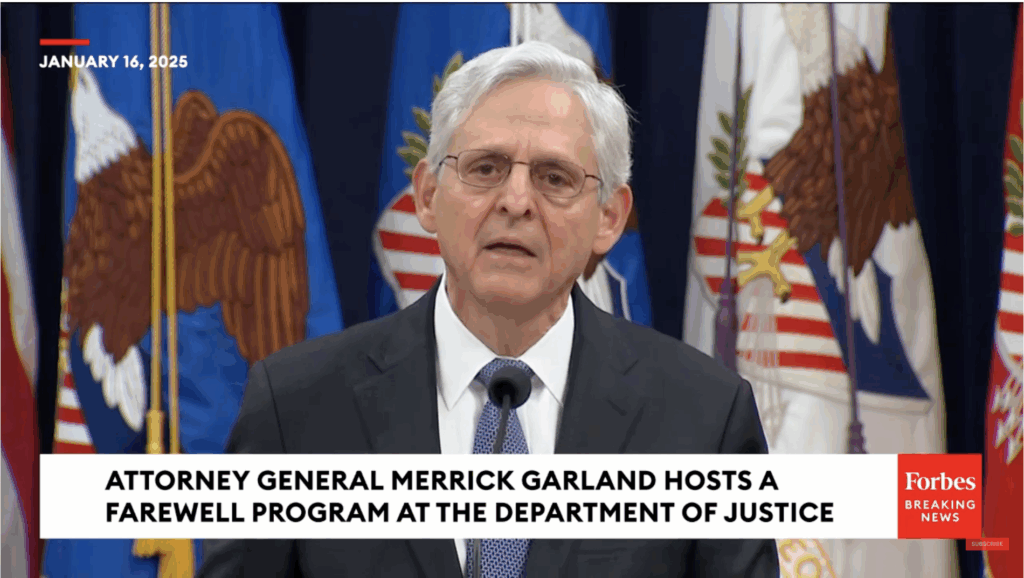Sen. Chuck Grassley has put a sharp spotlight on an investigation he says went too far, arguing it “unleashed unchecked govt power at the highest levels.” This article lays out the Republican view of that claim, explains the constitutional and oversight concerns involved, and reviews the tools lawmakers can use to push back. The focus is accountability, limits on executive overreach, and practical steps Republicans favor to restore balance.
‘This investigation unleashed unchecked govt power at the highest levels. My oversight will continue,’ Sen. Grassley wrote on X. Those words cut to the heart of the GOP argument: when investigative power swells without firm guardrails, civil liberties and separation of powers both suffer. Republicans see this as a pattern that needs to be corrected, not defended.
At its core the complaint is simple: investigations must follow rules and respect constitutional checks. When federal agencies or special counsels operate with broad, undefined authority, they create an environment where political targeting is easier and transparency is harder to secure. That reality stokes distrust in institutions that are supposed to serve all citizens impartially.
From a Republican perspective oversight is not partisan theater, it is a constitutional duty. Congress has tools like subpoenas, sworn testimony, and appropriations power to demand answers and set limits. Using those tools consistently and transparently is the GOP argument for rebuilding confidence in the rule of law.
Practical fixes Republicans propose focus on clarity and accountability. Define the scope of probes more narrowly, require periodic public reporting on investigative steps, and strengthen protections for Americans whose lives are affected by broad warrants or gag orders. The goal is to make sure investigations do their job without becoming a parallel system of unchecked authority.
Legal reforms are also on the table, but Republicans emphasize oversight first. Legislation can codify limits on surveillance, warrant practices, and special counsel mandates, yet the party argues that Congress must prove it can use oversight powers responsibly before handing courts and agencies new frameworks. That sequence, Republicans say, prevents unintended expansion of power under the guise of reform.
There are political and constitutional stakes tied together here, and Republicans treat them as one issue. If investigations are allowed to operate without transparent checks, the result is a permanent advantage for whichever party controls investigative institutions at a given moment. Restoring predictable, nonpartisan rules returns power to voters instead of to anonymous processes.
Media coverage and public messaging matter, but the GOP strategy leans on procedure. Open hearings, detailed public reports, and clear timelines are part of a push to let citizens judge facts, not narratives. Transparency reduces the chance that investigations will be weaponized or perceived as doing so.
Republicans also point to concrete oversight success stories to argue the model works when applied. Well-run committees force document production, secure sworn answers, and expose overreach without turning every inquiry into headline-bait. Those examples are used to justify continued vigilance and sustained oversight activity.
At the same time, the party warns against overreach by Congress itself and calls for fairness in how oversight is conducted. Harsh tactics or selective enforcement by lawmakers undermine the claim to be defending the Constitution. The Republican position insists that oversight remain principled: tough, but bound by rules and respect for individual rights.
In practice Republicans expect a cycle of hearings, targeted reforms, and renewed oversight plans aimed at limiting the kinds of expansive authority Senators like Grassley criticized. The focus will be on measurable changes: clearer warrants, stronger reporting rules, and tighter limits on investigatory reach. That approach is framed as protecting both liberty and effective law enforcement rather than obstructing accountability.
Ultimately the debate centers on balance—between giving investigators the tools they need and stopping the slide into unchecked power. Republicans argue that restoring that balance requires consistent oversight, legal clarity, and a commitment to transparency. The next steps will play out in hearings, legislation, and public scrutiny as lawmakers test whether institutions can be reined in without sacrificing safety or the rule of law.



